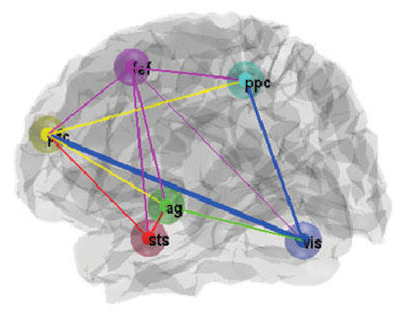
A recent advance that may significantly improve the clinical applicability of functional magnetic resonance imaging (fMRI) involves focusing on the slow spontaneous modulations in the BOLD signal that occur during resting conditions. In contrast to the traditional task-based approach, resting state studies record spontaneous brain activity in the absence of overt task performance or stimulation. Interestingly, identifying the correlations between brain areas in the resting state seems to emphasize the functional connectivity of the brain even in the absence of external stimulation or explicit tasks. Thus it is possible to map multiple circuits corresponding to distinct functions in a single study, without the complications of task-based studies that require sophisticated experimental setups. This makes the technique potentially applicable to individual patients, with virtually no experimental constraints.
This project aims at developing a medical technology based on resting
state fMRI for an improved noninvasive diagnostic and prognostic evaluation
of difficult clinical cases of movement disorders, such as Parkinsonís
disease and dystonias.
A critical component of the developed technology will consist in sophisticated
software algorithms for functional connectivity inference and classification.
The application of these algorithms may reveal distinct subtypes of the
heterogeneous diseases under study with distinct prognoses and which may
require different treatments.
fMRI is not intended to replace standard clinical testing as a first-line tool for diagnosis. However, it may be critically useful especially in difficult cases, as well as in early stages of the diseases, before overt clinical symptoms become apparent.
The project assembles a complex interdisciplinary collaboration of neurologists, neuroimaging specialists and bioinformaticians.
Project Partners